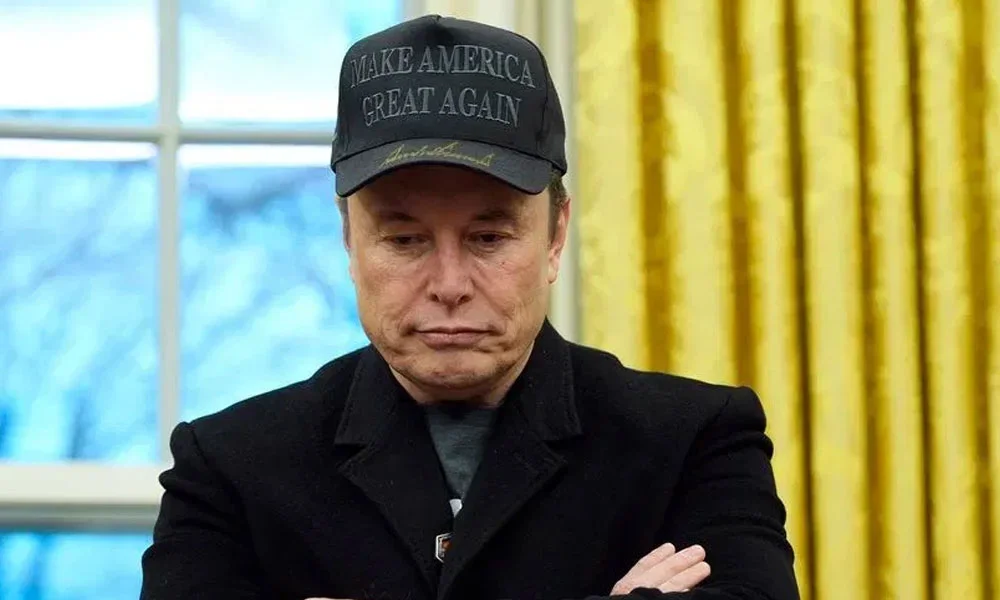In just over three months, Elon Musk has lost more money than most people can even imagine earning in a thousand lifetimes.
As of December 2024, Musk’s net worth was soaring at £376.3 billion ($486B), boosted by a roaring stock market after Donald Trump’s reelection. Fast forward to April 2025, and he’s down £113 billion ($146B)—a jaw-dropping 30% collapse—yet he still holds onto the title of richest person on Earth.
What’s behind this massive nosedive? Let’s break it down.
The Tesla Stock Meltdown
Tesla’s stock has been in freefall this year—down over 31% YTD. On 17th December 2024, Tesla stock was at an all-time high of £371.56 ($479.86). As of 31st March, it’s trading at £200.67 ($259.16)—a brutal drop of over £170 ($220) per share.
Given Musk owns 410.8 million shares (12.7% of Tesla), that price difference alone has cost him about £77.4 billion ($100B). That means every £1.88 ($2.43) movement in Tesla stock shifts Musk’s net worth by £774 million ($1B).
On several trading days this year, Musk lost over £7.7 billion ($10B) in a single day.
Read Also: Elon Musk Suffers Embarrassing Blow as His IRS Chief Forced Out
Tesla’s PR and Sales Nightmare
The decline isn’t just about numbers—it’s about narrative.
Tesla is facing an identity crisis as Musk takes on an increasingly political role, now leading the Department of Government Efficiency. His controversial actions—like slashing aid programs and downsizing federal offices—have triggered public backlash and a mass exodus of Tesla drivers.
Owners are now torching and vandalizing their own Teslas. Rival companies like BYD (backed by Warren Buffett) are stepping in to seize the moment. They just unveiled charging tech that’s reportedly twice as fast as Tesla’s, putting even more pressure on the EV titan.
Tesla’s global sales also slipped—down 1% to 1.8 million in 2024—while BYD crushed it with 4.3 million units sold, setting a new record. Meanwhile, Chinese EV makers Zeekr and Xpeng beat Tesla to the punch by launching Level 3 autonomous vehicles.
The Elon Factor: From Hero to Liability?
Tesla’s brand, once supercharged by Musk’s image, is now being dragged down by it.
More and more customers say they’re turning away from the company because of Musk himself. Lucid Motors CEO Marc Winterhoff told Business that half of their new orders come from ex-Tesla owners looking for a brand “not tied to Elon.”
It’s not just the average consumer feeling uneasy. Investors and analysts are souring too.
Wall Street Weighs In
Big-name brokerages have started slashing Tesla’s price targets:
- Stifel cut theirs to £352 ($455) from £367 ($474)
- Deutsche Bank dropped to £267 ($345) from £325 ($420)
- Morgan Stanley now sees the stock at £317 ($410) instead of £332 ($430)
All still maintain a “Buy” or “Overweight” rating, but the tone is clearly more cautious.
Adding to the turmoil, Tesla is recalling over 46,000 Cybertrucks due to loose body panels. It’s a gut punch to a product already struggling to live up to the hype.
Oh, and don’t forget: Tesla board members and execs sold over £77 million ($100M) worth of stock last month. James Murdoch alone dumped £10 million ($13M) in shares on the worst trading day Tesla has seen in five years.
What’s Next?
Tesla’s been through storms before—but this one feels different. Between slowing sales, growing competition, quality control issues, political backlash, and an increasingly polarizing CEO, investor confidence is shaken.
Tesla still leads in EV tech and has a loyal fanbase. But with former customers jumping ship and rivals making big tech leaps, the company has to act fast to steady the ship—and perhaps, rethink its captain’s public profile.
TL;DR: Elon Musk has lost £113B in 2025 as Tesla stock tanks 31%. Political backlash, a customer boycott, Cybertruck recalls, and rising competition (especially from China’s BYD and Xpeng) are dragging the company down. Wall Street is wary, execs are selling shares, and even Tesla’s most loyal customers are walking away.

